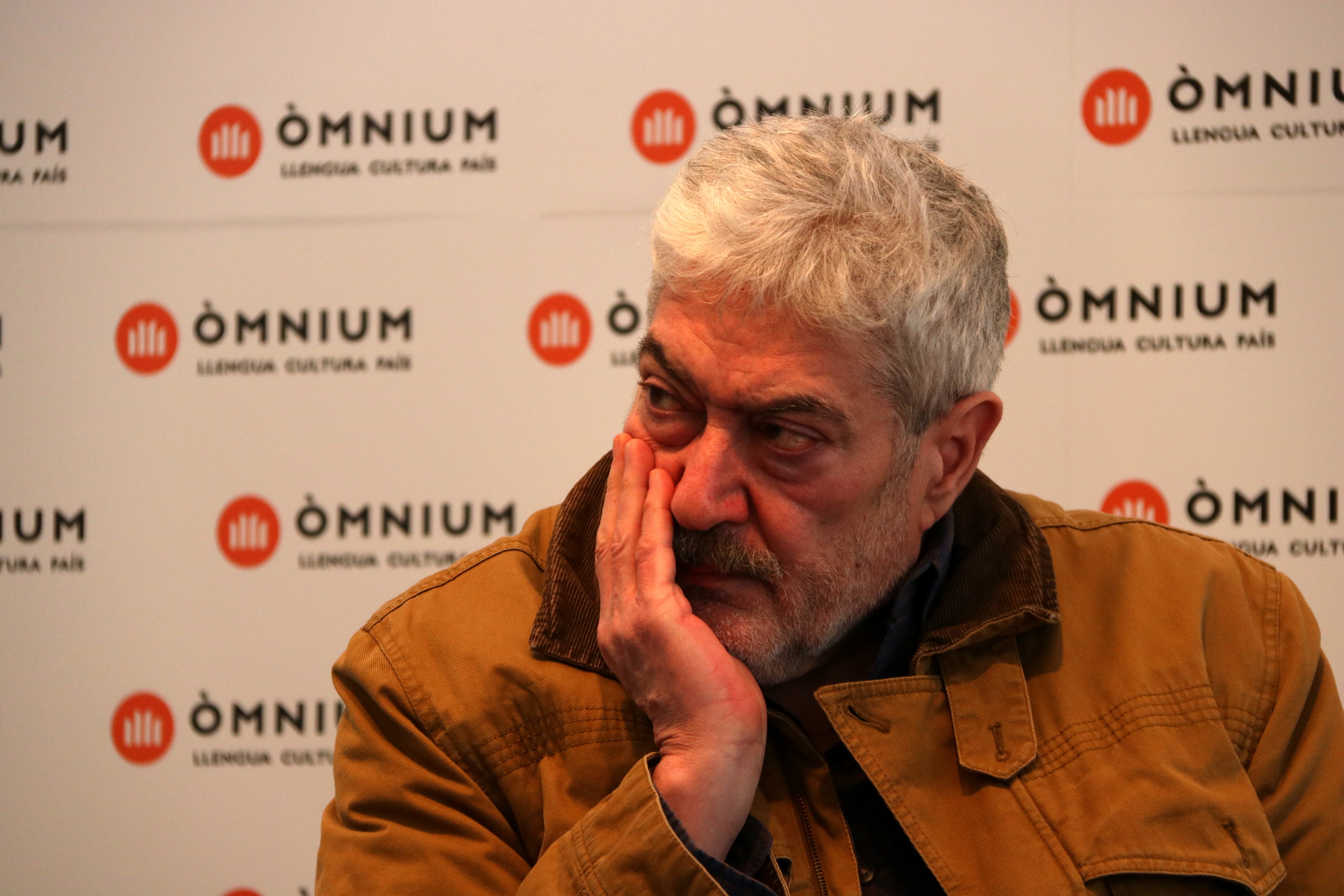The 50th Premi d’Honor de les Lletres Catalanes (Catalan Literature Prize of Honour), which comes with 20,000€ (£17,900, $24,800), has been awarded to Quim Monzó. Monzó, 65 years old (one of the youngest winners), joins a list which already features Catalan greats like Salvador Espriu, Joan Fuster, Mercè Rodoreda, Pere Calders, Miquel Martí i Pol, Josep Benet and Jaume Cabré. This year's award has been received very enthusiastically because Monzó, a novelist, storyteller, scriptwriter, translator and columnist, is one of the most symbolic figures of Catalan letters, with legendary books to his name like Gasoline, The enormity of the tragedy and El perquè de tot plegat (currently untranslated). Marcel Mauri, vice-president of Òmnium Cultural, creators of the prize, described Monzó as "one of the greatest ambassadors of Catalan culture". The announcement was unusual because Òmnium's president, Jordi Cuixart, is currently being held in pretrial detention in Soto del Real prison near Madrid for his role in the independence process; Mauri wanted to highlight the pain caused by this situation. The prize will be awarded on 4th June at Barcelona's Palau de la Música Catalana (Palace of Catalan Music).
Cuixart: The repression we've suffered and continue to suffer strengthens us in our convictions
Communicated by letter
Instead of the traditional phone call, Jordi Cuixart informed Monzó of the award from prison by letter. Òmnium's president, on the occasion of the announcement, sent his organisation a message, restating the "clear desire" to foster Catalan culture to put it on the same level as other great European cultures. "The repression we've suffered and continue to suffer strengthens us in our convictions. The best antidote for intolerance will always be culture," he wrote.
The jury's decision
Biologist, writer and journalist Martí Domínguez, part of the selection jury for the first time, explained the choice of Monzó as someone who has been able to capture "the soul of his time". He explained his many literary talents, emphasising his progression as a storyteller and essayist. He described him as a "narrative sprinter", "a kind of Pere Calders of our times" who "dazzles you". He said he is "a creator of incredible situations which are at the same time full of reality", one step away from surrealism. With respect to his work as a columnist, Domínguez commented on his "imperturbable intellectual independence" and his precise use of language: "he's a man for whom writing is rewriting, rewriting and rewriting".
Domínguez: Monzó is a man for whom writing is rewriting, rewriting and rewriting
Monzó, speechless
Monzó, in the press conference announcing the award, said that when he received Cuixart's letter, for the first time in his life he had been left speechless. He described it as "scandalous" that, for the first time in history, the president of Òmnium hadn't been able to call the awardee. So stupefied is he, in fact, that he hasn't managed to finish his draft reply: "how do you reply to someone who is unjustly imprisoned?" he asked, before answering his own question that it's not at all easy.
Monzó: How do you reply to someone who is unjustly imprisoned?
The author who stopped writing fiction
Monzó stopped publishing fiction because, he said, "I was sick to death of pirates". Asked whether he was ready to rethink it, he didn't want to give a firm answer. "Time will tell", he said, although he acknowledged that he doesn't have enough time to write fiction and that he thinks that "you have to leave your heirs something hidden in the bottom of a drawer".
Many questions
Monzó is very elusive and rarely gives interviews. As such, journalists took advantage of the press conference to pose him a wide range of questions. They've asked him if he's thought of writing a memoir, as some rumours have suggested, but said that he couldn't because "as Pere Calders said, I remember too many things". Although he hasn't discounted the option of writing them some day, he still has a sarcastic view of the genre: "when you write a memoir you exaggerate, you cut... What are memoirs if not fiction?". On the other hand he confessed he has a lot of unpublished material: "I write ceaselessly because I can't avoid it", adding: "later, part of what I write becomes a book". He also explained his routine: he's a disciplined writer, who spends the morning working on his articles, from very early, and spend the afternoon reading for pleasure, a lot of fiction (especially by his favourites, US authors). Ahead of 8th March, he wanted to highlight a female writer: Anaïs Nin, although he's convinced they wouldn't recommend her in schools. He said that once he threw away 3,000 of her books "in the organic", because no library wanted to accept them...
If I didn't know Spanish I wouldn't understand a lot of texts in Catalan, because they have a Spanish structure, that famous Spanish-Catalan hybrid
He cries for the language
Asked about the situation of "the language, the culture and the country", he said that the language is in the worst state of the three, that Catalan has been pushed aside in recent years: "we're heading towards Catalan becoming like Ireland". "It seems perfect to me for Catalonia to become an [independent] state, but whether it's a state or not, it seems pitiful to me, a state like Ireland" with the language marginalised. "It's a situation we're heading towards," he predicted. "If I didn't know Spanish I wouldn't understand a lot of texts in Catalan, because they have a Spanish structure, the famous catanyol*" he said, arguing that the political fight shouldn't mean the linguistic one is foregone.
*Translator's note: catanyol is a portmanteau of català (Catalan) and espanyol (Spanish). It describes Catalan with a heavy Spanish influence, for example: replacing native Catalan vocabulary with Spanish borrowings or altering certain grammatical structures.


